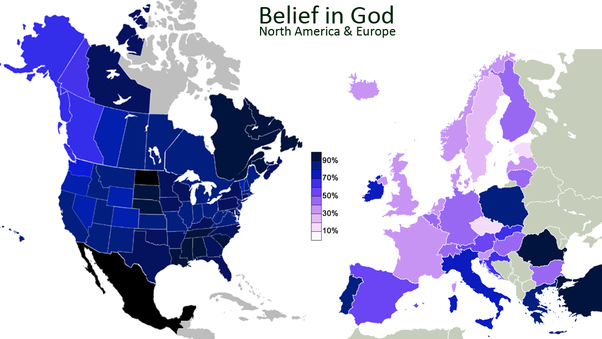引用スレ
- 3a911dac anonymous 2016-02-29 18:37
- http://www.alphr.com/science/1002792/artificial-intelligence-ten-things-you-need-to-understand
` Further up, Elon Musk described AI as an “existential threat” to
` humanity, meaning that it could erase mankind from the universe
` entirely. This ties in with ideas of a “Great Filter” that kills off
` alien civilisations that reach a certain level of technological
` development. It's entirely possible that the reason we've never met
` aliens is because they invented artificial intelligence before they
` could build spaceships capable of interstellar travel, and that
` discovery caused their extinction. - 5ac9c778 anonymous 2016-02-29 18:54 1456739691.mht (454KB)
- cd4ee063 anonymous 2016-03-05 22:54 1457186052.jpg (35KB)
- http://dailycult.blogspot.jp/2016/03/blog-post.html
` 2月28日、東京・渋谷で「平和のための核抑止力」「憲法9条で平和は守れない」
` 「北朝鮮・中国からアジアの平和を守りぬけ!」などとするデモ行進が行われ、
` 幼児や小学校低学年とおぼしき児童を含めた幼い子供数十人が大人や学生に混
` じって「従軍慰安婦、南京大虐殺は朝日新聞の捏造だ!」と元気にシュプレヒ
` コールをあげました。
右のプロ市民見参!

- e69524ff anonymous 2016-03-07 16:37 1457336244.jpg (59KB)
-

- 21d189c2 anonymous 2016-03-10 16:03 1457593399.jpg (22KB)
- うけけっ!

- c19838b5 anonymous 2016-03-10 16:07
- >>21d189c2
www - 967e5b72 anonymous 2016-03-10 16:24
- 口から生まれたやつの実態なんてそんなもん。
- 02cdc630 anonymous 2016-03-16 12:14 1458098088.jpg (388KB)
-

- b5f00638 anonymous 2016-03-17 18:04
- http://www.47news.jp/47topics/e/246352.php
> 戦時中、旧日本軍がインドネシアの捕虜収容所からオランダ人女性約35人
> を強制連行し、慰安婦としたとの記 載がある公的な資料が6日までに、国立
> 公文書館(東京)で市民団体に開示された。資料は軍の関与を認めた河野官房
> 長官談話(1993年)の基となるもの で、存在と内容の骨子は知られてい
> たが、詳細な記述が明らかになるのは初めて。
> 法務省によると、資料名は「BC級(オランダ裁判関係)バタビア裁判・第
> 106号事件」。 49年までに、オランダによるバタビア臨時軍法会議(B
> C級戦犯法廷)で、旧日本軍の元中将(有期刑12年)、同少佐(死刑)など
> 将校5人と民間人4人を 強姦(ごうかん)罪などで有罪とした法廷の起訴状、
> 判決文など裁判記録のほか、裁判後に将校に聞き取り調査をした結果が含まれ
> る。
> 計約530枚で、法務省がこれらを要約したものが談話作成の際に集められ
> た資料の一つとなった。原資料は99年に同省から公文書館に移管され、神戸
> 市の市民団体の請求に対し、9月下旬に開示した。
> 元陸軍中将の判決文などによると、戦時中の44年、ジャワ島スマラン州に
> 収容されていたオランダ人女性を、日本軍将校が命じて州内4カ所の慰安所に
> 連行し、脅して売春させた。 - 7c7d445f anonymous 2016-03-18 19:01 1458295309.jpg (1408KB)
- こんなことをやる右翼教師もいる。

- 467c5704 anonymous 2016-03-18 20:58
- いるの?
- b1660822 anonymous 2016-04-02 22:19
- >>467c5704
少し前の話だが、いたよ。 - c63ad6ef anonymous 2016-04-02 22:19 1459603197.jpg (30KB)
- 1968年のフランスを舞台とした映画«The Dreamers»から。毛沢東がフランス人の
間で人気を集めていた時期があった。
- 70666412 anonymous 2016-04-11 21:21 1460377277.jpg (571KB)
- «コンシェルジュ・インペリアル»第2巻から
介護職の女は大柄の男を好まないらしい。将来介護で苦労しそうだから。
- 2c77ebe6 anonymous 2016-05-11 06:35 1462916119.jpg (53KB)
-

- 5eb2d8b8 anonymous 2016-05-16 10:09 1463360993.jpg (79KB)
-

- c8d15d9f anonymous 2016-06-26 15:48
- http://www.nbcnews.com/health/health-news/new-american-death-overdoses-accidents-n589786
` Accidents are killing more Americans each year, increasingly from
` overdoses and falls.
` A new report from the National Safety Council said that in 2014, more
` than 136,000 Americans died accidentally. That's up 4.2 percent from
` the year before and a jump of 15.5 percent over a decade. And the
` accident rate has risen despite a 22 percent plunge in car crash
` deaths since 2005.
` Overdose and accidental poisonings are up 78 percent over a decade —
` pushing aside car crashes as the No. 1 accidental killer in the U.S.
` They killed 42,032 people, about 6,000 more than vehicle accidents.
` Opioid overdoses killed 13,486 people in 2014, the non-profit safety
` council reported.
` Falls are up 63 percent over a decade, which experts said is a
` function of an aging society.
アメリカ社会でも高齢化が進んでいる。 - da3f5248 anonymous 2016-09-12 16:23
- agé
- 7adb69de anonymous 2016-10-14 07:06
- age
- c859615f anonymous 2016-12-03 23:27
- 15827aa1 anonymous 2016-12-22 07:38
- http://www.nikkan-gendai.com/articles/view/news/195962/1
` 小人数の会談に出席したロシアのウシャコフ大統領補佐官(外交
` 担当)のコメントとして、「両首脳は北方領土での共同経済活動
` の協議開始に向けた共同声明の内容で合意した」と伝えた。
` 問題は具体的な合意の中身で、ウシャコフ補佐官が「共同経済活
` 動はロシアの法律だけに基づいて行われる」と強調したことだ。
` ■「自国の法律の下で」
` 安倍首相はプーチンに北方領土を献上したも同然である。ロシア
` の法律の下での活動合意は「不法占拠された北方領土の主権回復」
` という原則が崩れ、ロシアの主権を認めることに他ならないから
` だ。 - c19db2be anonymous 2017-02-14 22:53 1487080413.jpg (169KB)
-

- 5b94654b anonymous 2017-02-24 08:58
- http://www.nikkei.com/article/DGXLASFL21H6G_R20C17A2000000/?n_cid=DSMMAA10
` 東芝の経営危機の引き金となった米原子力発電所建設会社の買収
` を巡る紛争相手のエンジニアリング大手、シカゴ・ブリッジ・ア
` ンド・アイアン(CB&I)。同社はかつて著名投資家のウォー
` レン・バフェット氏が率いる投資会社バークシャー・ハザウェイ
` が大株主だったが、すでに株主名簿にその名前はない。バフェッ
` ト氏が手を引いた理由を探ると原発事業の苦境が浮かび上がる。
原子力は泥船。 - d08c1568 anonymous 2017-02-25 22:34
- http://simplearchitect.hatenablog.com/entry/2016/03/28/081149
>USの状況を見て観察すると、日本の場合、最初に飛びつく層のスピードはUSとそんなに変わらない。その後USでは徐々に本番で使い始めるのに対して、日本はレイトマジョリティぐらいの間までずっとキャズムの谷が続く。世界的に多くの人が使うようになってからやっと企業が導入し始める。リスクがあるとかなんとか言って。これでは世界で勝てるはずがないし、先進テクノロジーの会社が「商売にならない」とそっぽを向いてしまうのも致し方がない。 - 86294d55 anonymous 2017-04-11 13:23
- >>d08c1568
ふむぅ……こりゃ確かに日本では難しそう。特に社会は近頃ウォーターフォールを好む気質を強めてるし。 - 23a39b25 anonymous 2017-05-10 16:46
- http://www.nikkei.com/article/DGXLASDZ10HM6_Q7A510C1000000/
` 長谷川氏が社長に就いた04年3月期、武田の最終利益は2853億円。
` 08年3月期には長谷川氏在任中としてはピーク(3555億円)を達
` 成した。ところが、武田が10日発表した17年3月期決算では、最
` 終利益が前の期比43.4%増の1149億円と、ピーク時の3分の1に
` とどまった。ライバルのアステラス製薬(17年3月期は2187億円)
` にまで大きな差をつけられたままだ。
` 長谷川氏が進めたグローバル化の成果は見え始めてはいる。就任
` 時とくらべ、海外売上高は2.3倍の1兆700億円(全売上高の60%
` 超)に拡大。海外従業員数も4.1倍の2万700人(全従業員の70%
` 弱)と大幅に増えた。米ミレニアム・ファーマシューティカルズ
` とスイスのナイコメッドを計2兆円で買収したことが大きく影響
` した。
無能な社長に14年間も経営をさせていたというのは、資本主義もう
まく自己最適化できないことがあることを示している。 - dac4e51d anonymous 2017-08-09 11:58
- >>23a39b25
東芝も! - b1961be3 anonymous 2017-09-07 06:18 1504732739.png (134KB)
-

- 3f53a171 anonymous 2017-09-15 19:03 1505469796.ppt (416KB)
- 5dfa0857 anonymous 2017-10-03 18:57 1507024678.jpg (39KB)
-

- 289a0320 anonymous 2017-10-20 09:22 1508458979.jpg (633KB)
-

- 67d6217a anonymous 2017-10-21 23:52 1508597521.png (107KB)
-

- 1ed944a6 anonymous 2018-01-12 09:21 1515716468.rar (694KB)
- 順位 国名 自動車メーカー 不具合指摘件数
1 ドイツ ポルシェ 80
2 韓国 起亜 86
3 イギリス ジャガー 93
4 韓国 ヒュンダイ 95
5 日本 インフィニティ 97
品質でポルシェどころかヒュンダイにも負けている…… - 800a120a anonymous 2018-01-15 14:03 1515992627.png (93KB)
-

- a5df25ea anonymous 2018-04-12 07:22
- https://en.wiktionary.org/wiki/%E5%95%8A
啊
Used to indicate doubt or questioning. what?, huh?, eh
啊?你說什麼? / 啊?你说什么? ― Á? Nǐ shuō shénme? ― Huh, what did you say? - d5b41f8f anonymous 2018-06-26 20:56 1530014171.pdf (199KB)
- 東大生の身長について
- 14fbb359 anonymous 2018-08-08 09:41 1533688861.html (336KB)
- Names of large numbers - Wikipedia
- 406f810e anonymous 2018-10-21 07:11 1540073518.jpg (112KB)
-

- e816b986 anonymous 2018-11-01 07:49 1541026178.html (21KB)
- 30caa623 anonymous 2018-11-09 20:39 1541763568.jpg (159KB)
-

- 3e1f0437 anonymous 2018-11-12 16:43 1542008604.jpg (739KB)
-

- c206f419 anonymous 2018-11-12 18:26 1542014791.jpg (206KB)
- Halloween at Budapest

- 306152b7 anonymous 2018-11-12 20:20 1542021619.jpg (216KB)
-

- 1b4f28a8 anonymous 2018-11-16 18:51 1542361914.html (311KB)
- Japanese are part proto-Nordic _ Genetiker.html
- ea6b54f5 anonymous 2018-11-19 16:26 1542612396.rar (166KB)
- b995a13a anonymous 2018-11-19 16:33 1542612816.png (32KB)
-

- f810a232 anonymous 2018-11-20 07:15 1542665710.jpg (548KB)
-

- 480e9ff0 anonymous 2018-12-12 23:19
- http://fortune.com/2011/07/28/what-makes-china-telecom-huawei-so-scary/
> Particularly vexing for Huawei is the suggestion that the
> company could be used to spy on behalf of the government
> in Beijing. Unverified assertions that the company is “
> linked” to the Chinese military appear regularly in news
> articles. The charges are largely based on the fact that
> Huawei’s media-shy founder and CEO, Ren Zhengfei, once
> served in the People’s Liberation Army as a telecom
> technician, and that the company (like AT&T, Sprint, and
> Verizon in the U.S.) is a military and government
> contractor in its home country. “The context of all this
> is, China is very active in espionage, as are we,” says
> James Lewis of the Center for Strategic and International
> Studies (CSIS) in Washington, D.C. At a minimum, says
> Lewis, Huawei has an image problem in cyber circles. “The
> national security community in the U.S. is united in its
> opposition to Huawei,” he says. - 6b444648 anonymous 2019-01-09 23:17 1547043462.jpg (107KB)
-

- f77db907 anonymous 2019-03-11 00:03
- https://www.nikkei.com/article/DGXMZO41694140V20C19A2000000/
` もっとも運用を開始してから、まだ1年4カ月とあって、AIに懐疑的な見方も根
` 強い。AIEQの上場来の上昇率は2%と、この間のS&P500の9%に及ばない。AIEQは
` 株高局面で力を発揮しているが、逆に調整局面では下落が大きいためだ。年初
` から株高の波に乗ったAIファンドマネジャーだが、本当の力量が問われるのは
` これからだ。
(引用スレ/50/11.1MB)






















